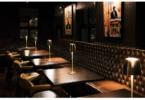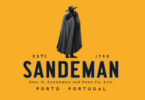DIGI calls for 15% reduction in alcohol tax
Excise duties on alcohol have increased by between 27% and 62% since 2012 so that the average Irish consumer now pays 10 times more in alcohol taxes than the average German according to DIGI in its annual Budget Submission to the Minister for Finance.
In less than 12 months between December 2012 and October 2013 excise on beer increased by 44%, excise on spirits by 27% and wine excise increased by 62%, points out the submission, making Ireland the third-highest excise rate in the EU on beer and spirits and the highest on wine.
Indeed the DIGI submission puts the blame for the disproportionate increase in the price of alcohol firmly at the Government’s door when it states, “Government activity has been responsible for 77% of the price increase since 2011 of an average-priced pint of stout”.
The submission goes on to state, “These increases fulfilled a short-term liquidity requirement for the Government (which turned out to be temporary due to the rapid improvement in the economy and public finances). Few other industries, if any, have been as badly affected by recent Government fiscal policy. These increases now threaten the stability and continued growth of the drinks industry in Ireland and put at risk the 92,000 jobs that it supports across every city, town and village in the country”.
The State takes in €1.34 or 31.2% from an on-trade pint costing €4.30, €16.71 or 65.2% from an off-licence bottle of whiskey costing €25.64 and €5.17 or 48.9% from an off-licence bottle of wine costing €10.58.
The submission points out that 1,023 pubs closed between 2007 and 2014 with on-trade sales volumes declining by 34% in the eight years between March 2007 and March 2015, far larger than the 17.8% reduction in consumption rates generally in the same period.
With the improvement in the economy has come a slowing of the on-trade sales decline last year to just 0.5% in 2014 compared with declines of 2.7% in 2013, 5.1% in 2012 and 5.5% in 2011. And in the first quarter of 2015 sales showed no change compared to the same quarter in 2014.
Against this should be set a 4.8% growth in GDP, a 5.5% increase in overall retail sales and a 1.1% increase in consumption volumes.
Nevertheless, the number of active pub licences continues to decline due to additional factors beyond increases on excise. These include weak domestic demand, lower discretionary incomes, weak credit availability, market shifts, cost pressures and competition from low-priced products from the multiples.
All this has led to a decline of over 10% in pub licences between 2007 and 2014.
Off-licences
According to figures from NOffLA, 50% of independent off-licences reported a decline in turnover in 2014 compared to 2013.
“Close to 50% of these cited the current level of excise as the main reason for a decline in business, with over 50% suggesting they would struggle to remain open if excise was increased again in Budget 2016”.
The excise increase has also adversely affected distributors and importers since they have to pay excise increase costs upfront, placing more pressure on cashflows in the absence of credit availability from the banks.
The Irish Consumer
The second part of the DIGI submission looks at the effects of such high excise rates on Irish consumers who pay an average of €420.37 in alcohol excise per year compared to the €40.21 paid by German consumers.
DIGI believes that a 15% reduction in excise tax on alcohol will go some way towards bringing Ireland’s excise tax levels more in line with those of the other EU28. Such a reduction will also ensure Ireland’s continued price competitiveness and will give back to the hard-pressed Irish consumers, states the submission.
There’s also the danger of a resumption in cross-border purchasing of alcohol if the present situation continues.
The implications of such a high excise tax on Ireland’s tourism industry are also highlighted in the third part of the submission.
“We cannot legitimately continue to develop Irish whiskey tourism when, despite Irish whiskey being produced in Ireland, Ireland is one of the most expensive places to buy the product with 68% of the average retail price of a bottle of whiskey taken by the Government in the form of taxes,” concludes the DIGI submission.








